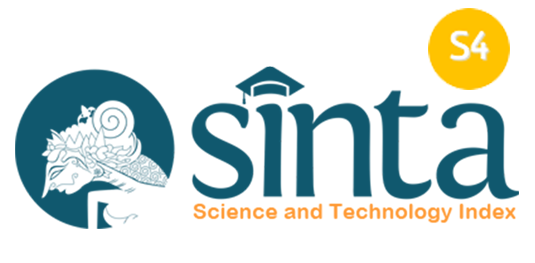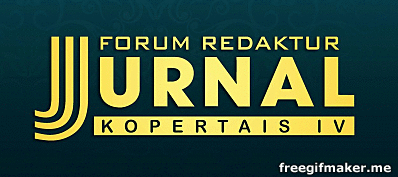PENERAPAN PENDEKATAN SAINTIFIK DALAM MENGEMBANGKAN LIFE SKILL PESERTA DIDIK PADA MATA PELAJARAN FIKIH
 PDF Download: 120
PDF Download: 120
DOI:
https://doi.org/10.32665/alulya.v8i1.1386Keywords:
Scientific Approach, Life Skills, FikihAbstract
The scientific approach is part of the pedagogical approach that applies the scientific method to classroom learning. The scientific approach is known to have 5 components in it which are called the 5M (observing, asking, gathering information, reasoning and communicating). The purpose of this study was to find out the application of the scientific approach to learning in the Islamic Jurisprudence class VIII at MTs Miftahul Ulum Karangsari and to find out the impact of the scientific approach in developing students' life skills. The approach used in this study uses a qualitative approach with the type of research Filed Research (field research). Data collection techniques in this study used observation, interviews and documentation. The data analysis technique uses the technique in the opinion of Miles and Hubermen, namely data reduction, data presentation, and drawing conclusions or verification. Based on this research data the application of a scientific approach to Class VIII fiqh subjects at MTs Miftahul Ulum Karangsari has been implemented well although there are still some obstacles. The impact obtained from applying a scientific approach to students' life skills is that it is easier for students to understand the material presented so almost 85% of the marks they get are much better. Then the application of a scientific approach also influences the development of life skills, students become more creative, active, innovative, and independent in the learning process. Besides that, students' social skills also develop, as seen from how they work together to solve or complete a task, as well as how they can present the results of their discussions in front of other friends.
Downloads
References
Dewi, A. E. A., & Mukminan, M. (2016). Implementasi pendekatan saintifik dalam pembelajaran IPS di middle grade SD Tumbuh 3 Kota Yogyakarta. Jurnal Prima Edukasia, 4(1), 20–31.
Dewirsyah, A. R. (2021). Seminar Pengajaran Bahasa Indonesia. umsu press.
Fadlillah, I. K. (2014). Kurikulum 2013 Dalam Pembelajaran SD/MI, SMP/MTS & SMA/MA. In Yogyakarta: Ar-Ruzz Media. Pustaka Ali Imron.
FIP-UPI, T. P. I. P. (2007). Ilmu & Aplikasi Pendidikan. PT Imperisal Bhakti Utama.
Fitri, A., Saparahayuningsih, S., Agustriana, N., & others. (2017). Perencanaan pembelajaran kurikulum 2013 pendidikan anak usia dini. Jurnal Ilmiah Potensia, 2(1), 1–13.
Hosnan, M. (2014). Pendekatan saintifik dan kontekstual dalam pembelajaran abad 21: Kunci sukses implementasi kurikulum 2013. Ghalia Indonesia.
Machin, A. (2014). Implementasi pendekatan saintifik, penanaman karakter dan konservasi pada pembelajaran materi pertumbuhan. Jurnal Pendidikan IPA Indonesia, 3(1).
Mayasari, E., & Arisnaini, A. (2021). Pendekatan Saintifik dalam Peningkatan Keaktifan Siswa pada Pembelajaran Agama Islam di SMANegeri 1 Peukan Bada Kabupaten Aceh Besar. Serambi Tarbawi, 9(2), 157–176.
Miles, Matthew B., Huberman, A. Michael. dan Saldaña, J. (2014). Qualitative Data Analysis A Methods Sourcebook (3rd ed.). SAGE.
Pahrudin, A. (2019). Pendekatan Saintifik Dalam Implementasi Kurikulum 2013 Dan Dampaknya Terhadap Kualitas Proses Dan Hasil Pembelajaran Pada Man Di Provinsi Lampung. Pustaka Ali Imron.
Sanwil, T. (2021). Pembelajaran Bahasa Arab Untuk Siswa SD/MI. Yayasan Penerbit Muhammad Zaini.
Setiarini, A. (2016). Meningkatkan Motivasi dan Hasil Belajar Peserta Didik dengan Mengoptimalkan Penerapan Pendekatan Saintifik Strategi Discovery Learning dan Metode Diskusi di SDN Model Mataram. Jurnal Kependidikan, 2(1).
Siswadi, M. P. I. (2016). Implementasi Pembelajaran Fiqih Berbasis Life Skill di MI Al Hasan Kecamatan Sumpiuh, Kabupaten Banyumas.
Suparsawan, I. K. (2020). Kolaborasi Pendekatan Saintifik dengan Model Pembelajaran STAD Geliatkan Peserta Didik. Tata Akbar.
Yafie, E., & Sutama, I. W. (2019). Pengembangan Kognitif (Sains pada Anak Usia Dini). UNIVERSITAS NEGERI MALANG.
Downloads
Published
How to Cite
Issue
Section
License
Copyright (c) 2023 Al Ulya: Jurnal Pendidikan Islam

This work is licensed under a Creative Commons Attribution-NonCommercial-NoDerivatives 4.0 International License.
 PDF Download: 120
PDF Download: 120













